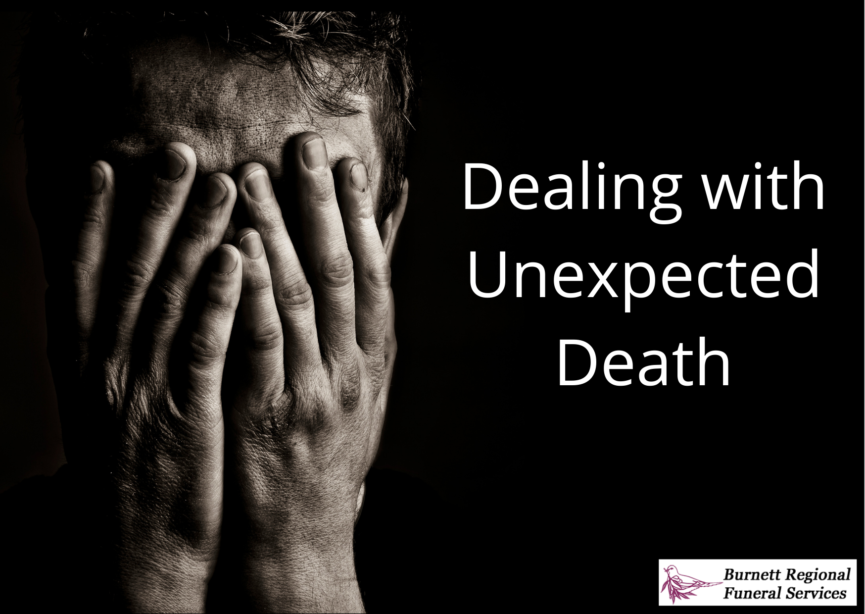Coping with the death of a loved one is never easy but dealing with an unexpected death can be extra challenging. When a death is expected there is time to prepare. There is the opportunity to say goodbye, and to make a certain level of peace with what is to come. But when a death is unexpected, those left behind are left without those opportunities. A sudden, unexpected death can happen for a wide range of reasons – it may be a heart attack, stroke or other medical emergency, an accident or suicide. Regardless of how it comes about, dealing with a sudden death is challenging to even the strongest person While most people can and will experience shock, confusion and grief when someone close to them dies, these feelings can be amplified if a death is sudden and unexpected. Each situation will carry it’s own emotional difficulties, depending on the circumstances of the death. In fact, any sudden or traumatic death will bring with it a series of challenges on one’s internal resources. You might also experience disbelief, hope that news of the situation is wrong (particularly in cases where physical evidence is absent, for example, someone missing at sea or a plane crash), absent grief (where what has happened has not yet registered in your mind), regrets (particularly around the inability to say goodbye, things you wish you did differently, or things that were said or went unsaid), guilt, anger or a sense of helplessness. There is no right way to cope, and you’ve ultimately got to do what feels right for you, but here are some ideas that might get you started on the road to processing your grief. If you were with the person when they died, you might feel the need to share your story. While you might worry this could be frowned upon, we’d like to reassure you that it’s a perfectly normal response. You may like to seek the help of a registered professional, for example, a counsellor or psychologist, or you may prefer to confide in a trusted friend. You might also find that it’s important for you to be honest in sharing you experience, rather than glossing over parts of the story. If you feel the need to talk through your experience, make sure that it’s with a person who you know will make you feel safe and supported, whatever that may look like for you. It might also be helpful to share your feelings and experiences with other people who have gone through similar experiences. It’s important to surround yourself with people that understand that grief is a process and it will take time to make sense of what has happened. It is important during this time that the bereaved person feels loved, supported and listened to. When you’re dealing with an unexpected death, its important that you monitor your physical and mental state, and seek help for any health issues that may arise during this time of distress and … Read More

